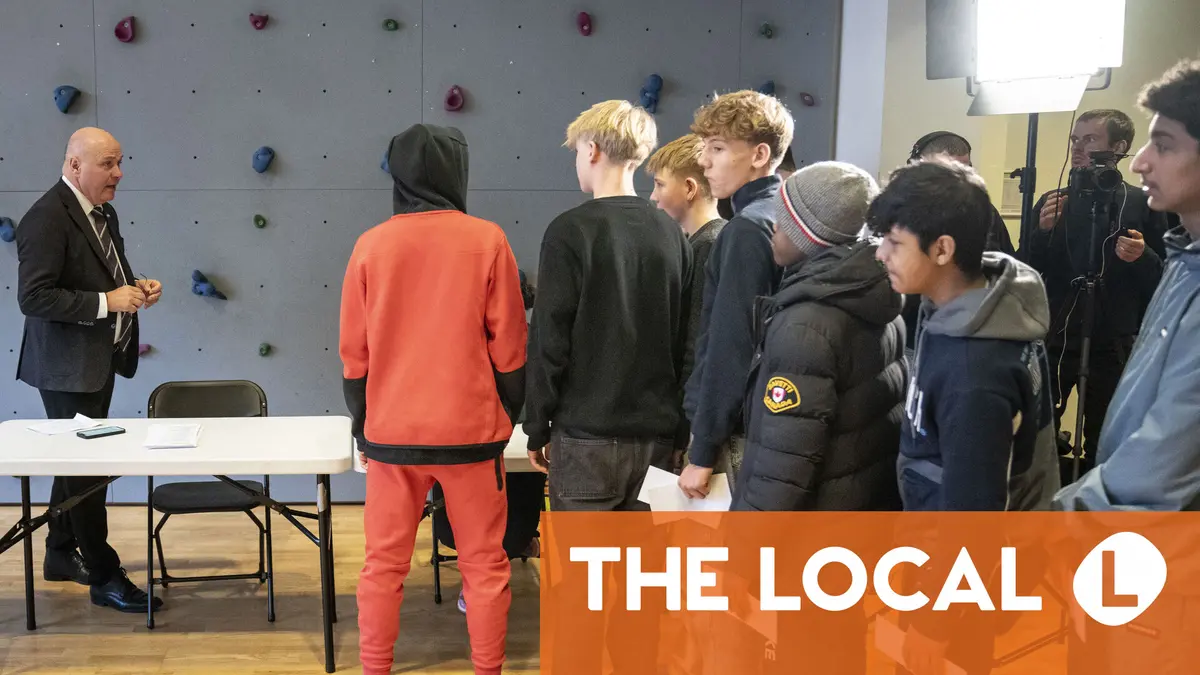With parliament’s speakers banning discussion of Palestine in school mock elections and data showing progress in mid-sized towns, our weekly column Inside Denmark looks at some of the topics we’ve been talking about this week.
Politicians’ ban on discussion of Palestine sparks censorship row
A huge debate was sparked in Denmark on Friday after the præsidium, the council of speakers in the Danish parliament, announced that Palestine would not be permitted as a topic of discussion in next year’s mock general election for schools.
Held regularly in Denmark, students in the 8th, 9th and 10th grades cast their ballots for who they think should lead Denmark in the poll, which has no bearing on real elections. It’s up to individual schools as to whether they take part.
Young people debate topical issues and learn about the various parties from across the political spectrum, in an exercise which has the overall aim of teaching them about taking part in democracy, elections and politics.
Parliament’s leadership said on Friday that it would be banning the campaign issue “Recognise Palestine as an independent state” from next year’s mock school election.
The decision immediately drew criticism from some opposition parties and NGOs, including Save the Children Denmark’s Secretary General Johanne Schmidt-Nielsen.
The Danish School Students’ Association (Danske Skoleelever) also spoke out against the decision, saying the “debate is already happening”.
“It’s just going to continue in a more unqualified way out in the schoolyard,” the association’s chairperson, Caroline Helene Hermansen, told news wire Ritzau.
Newspaper Politiken initially reported that the præsidium had decided not to allow the issue to be included as a campaign topic in the nationwide school election programme.
The parliamentary speakers, led by Speaker Søren Gade, cited the “high degree of complexity” and the potential sensitivity of the topic for certain pupils and their families as reasons for the ban.
Advertisement
“I get the sense that the idea is we just don’t talk about it. But it’s already a major topic in schools. We need to make sure it’s dealt with in a structured setting,” Hermansen said.
“If pupils are left to deal with it on their own, it can be sensitive. Teachers need to be present to support the pupils,” she said.
“Most pupils are already familiar with the issue. That’s why I also think we have a responsibility to include it,” she added.
The president of the Danish Union of Teachers, Gordon Ørskov Madsen, backed that viewpoint and distanced himself from the reasoning given by parliament.
“The rationale is that the topic is too complex and sensitive for specific pupils and their families, but banning it from the school election doesn’t make it any less sensitive or complex,” he told Ritzau.
“It’s a mistake by the præsidium, and I think they need to reconsider. When you decide centrally that a topic like this can’t be raised, you risk making it taboo,” he said.
The speakers of parliament do not normally get involved in the school election, an educational programme designed for pupils at Denmark’s folkeskoler or elementary schools.
Gade defended the decision, saying the topic could “start a fire” in classrooms in comments to Ritzau.
Advertisement
“You can’t have a proper discussion of that issue in 20 minutes, but you can light a fire in a classroom in that time,” he said, adding “there’s a risk it ends up dividing pupils more than uniting them in democratic dialogue.”
And it’s precisely that democratic dialogue that matters,” he said.
The Speaker denied the decision was a form of censorship, “because schools are free to discuss it any day of the year.”
“In some classrooms, I would think it could be debated without any problems. But you also have to acknowledge that in some classes – especially perhaps in places with many pupils of non-Danish ethnic background – feelings could run so high that it might be difficult for a teacher to hold the class together afterwards,” he said.
One of the opposition parties to have criticised the decision is the libertarian Liberal Alliance.
“We believe that all topics should be open to debate, and we do not want to shut down selected issues at the school election, such as the debate on the Palestine conflict,” political spokesperson, Sólbjørg Jakobsen said in a written comment to Ritzau.
“In an open and free democracy, we must be able to discuss the difficult issues”, she added, saying that this should also apply to young people.
Data shows boom for mid-sized towns
It’s no secret that Copenhagen is a sought-after place to live in Denmark, and the same can be said for second-city Aarhus.
But there are signs that smaller towns are gaining appeal, a new report released this week by Statistics Denmark suggests.
Advertisement
Towns with populations of around 50,000 figure prominently among those to have seen the steepest relative populations growths over the last decade, with Silkeborg, Vejle and Horsens learning the way.
READ ALSO: IN DATA Which Danish towns and cities are growing the fastest?
“There are simply more businesses in and around the bigger cities, and this puts them in a stronger position in the global competition,” the senior economist with the Danish Chamber of Commerce, Tore Stramer, told Ritzau in a comment.
With smaller towns set to build their profiles in coming years – for example by welcoming university campuses and building large numbers of new homes, as is the case in Vejle – it will be interesting to follow their development in the years to come.
